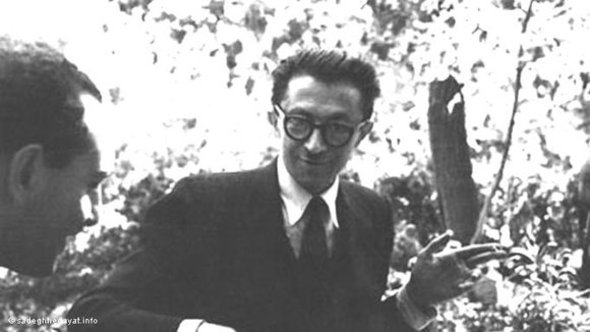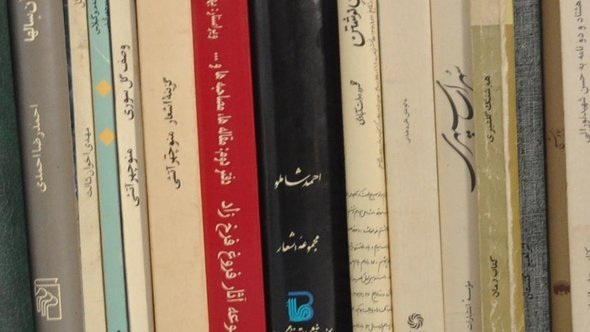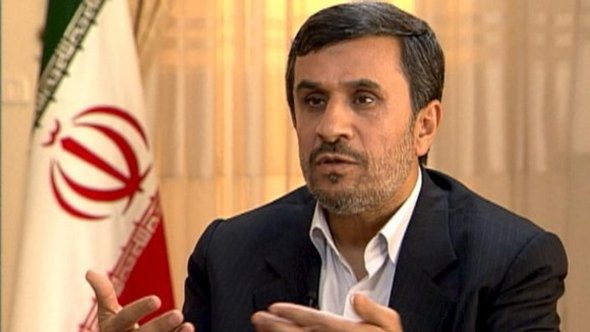Fighting a Losing Battle

For more than one hundred years, the people of Iran were denied the right to freedom of speech, an independent media, political parties or trades unions. Under these conditions, literature and art became the media through which they expressed their criticism and their hopes. Writers, artists and other creative people thus attained an important and influential role within society.
Censorship, self-censorship and the onset of a change of generations over the past two decades have, however, almost entirely wiped out this influence.
Only a few weeks ago, the Ministry of Culture and Islamic Guidance (Ershad) branded Bertold Brecht's drama "Mother Courage and Her Children" obscene from a moral point of view. At around the same time, some new state-controlled censorship software automatically deleted the term "anti-filtering programme" from a fatwa issued by the country's religious leader, Ali Khamenei, on his own website. What's going on?
In Iran, there is nothing new about important literary works being considered offensive to Islam and being banned. Nothing new either in the virtual battle fought out between the official website filters of the Islamic Republic and the anti-filtering software employed by many Iranian Internet users; it is a daily fact of Persian-language Internet life.
For some years now, the Islamic censorship authorities have been using software that deletes unacceptable or forbidden words from websites and replaces them with acceptable alternatives, regardless of context. "Anti-filtering software" is one of the prohibited terms. Khamenei's fatwa declared the use of anti-filtering software to be "not permissible, except to holders of certain offices." His software deleted the term, replacing it with three dots.
A few hours later, the operators of the religious leader's official website noticed that by deleting the term, they had interfered with a legal ruling from the country's highest political authority and quickly took steps to reverse the process. But not quickly enough. The word, so to speak, was out, and the absurdities of the censorship system became the butt of much ridicule.
Omnipotent censors
At the "book reviews department" of the Ministry for Culture and Islamic Guidance the control software is used to simplify and speed up the work of the censors. Every book – whether novel, poetry, literary classic, religious tract or school or university textbook – has to be submitted to this department so that the censors, or "reviewers", as they are officially called, can examine it prior to publication.
No book, not even the Koran, can be published without the permission of this authority. Writers, whether Iranian or not, who are already subject to a general publication ban, or whose books are banned in the country, make the "reviewers'" lives easy. The long lists of such prohibited authors contain very diverse names: from Sadegh Hedayat, modern Persia's greatest writer, to high-ranking clergy who have criticized the regime.
Nevertheless, the sheer size of the workload they have to deal with in the time available is a common complaint of the censorship officials, and it can take up to two years for a book to be "reviewed". In order to speed up the process, a computer carries out the first check. Then the "reviewer" takes over. Once both stages are complete, the author receives the "corrections". These "corrections" are really instructions on the paragraphs, lines and words to delete, the words to replace and the changes to make to the content. Permission to publish will only be granted once these amendments have been made.
Following the Islamic line
Censorship in Iran is of a political, religious and ethical-moral nature. Forbidden words may come not only from the political realm but from any area considered immoral – love affairs, for instance, bedrooms, kisses or wine. Changes with regard to content are made where material offends on the philosophical, theoretical, political, ethical, moral or religious level.
Theoretical texts containing controversial philosophical or social theories or arguments, for example, have to be "corrected" to fit in with official state ideology.

In stories and novels, it is not just a matter of offending passages being deleted; in some cases, protagonists may well have to undergo alterations to their character, views or behaviour too. A paragraph may be inserted, which will suddenly and mysteriously transform the relationship between two characters by marrying them to one another, thus sanctioning their actions by allowing them to conform to Islamic practices. Homosexuals either do not appear at all in the stories, or they change their inclinations in favour of the opposite sex. There is no kissing and no exchanges of intimacy between men and women.
No colloquial language is allowed, nor any rude words, and everyone talks in stereotypically polite standard phrases. At the latest, by the end of a story, it is also likely that the positive characters will have discovered their true, profoundly religious nature.
Iranian writers and poets are masters of indirect language, and their readers have become specialists in reading between the lines. The censors are no slouches in the techniques either and have become experts in breaking the codes of metaphor, allegory and indirect formulations and in neutralizing them by deletion or modification. Even Persian classics such as The Masnawi by Rumi or Nezami's Khamsa are not sacred when it comes to censorship.
Turning wine into coffee
The initial corrections made by the software filter can sometimes have a touch of the bizarre about them. References to "wine" or to other alcoholic drinks will be systematically removed, for example, to be replaced by "coffee" or "drink".
The translator of Thomas Mann's novel The Magic Mountain translated the phrase "blushing with shame" into the Persian equivalent: "the sweat (araq) of shame lay upon his forehead". The Persian word "araq" has two meanings: sweat and vodka. The software quickly converted the offending word so that the translation became "the coffee of shame lay upon his forehead".
The official censorship and self-censorship imposed by the climate of fear created by the imprisonment, expulsion and murder of writers, has existed for over three decades. In recent years, however, Iranian censorship has become so strict that most Iranian writers don't even bother to publish their books in the country, opting instead to publish in the Persian language, or in translation, preferably in Europe or America.

A writer, poet or intellectual who does not publish gradually disappears a little at a time from society, culture and the collective memory, and with him goes his influence. It is a process with which Iran's writers, poets and intellectuals are all too familiar at the present time.
Writers on the margins
When religious reformer Mohammed Khatami became president for the first time (1997–2001), the political theorists among the intellectuals in his own faction were initially given more freedom than they had previously had. By Khatami's second period of office (2001–2005), most of them were no better off than the writers and poets with no government connections. It is a state of affairs that has continued during Ahmadinejad's presidency (since 2005).
Mahmoud Ahmadinejad has won the presidential elections twice thanks the support of the poor people of the towns and villages, who make up the majority of the population. His policies have consistently been concerned with attempts to limit the power of the Shia clergy and their religious leader and, at the same time, to enforce strict censorship on independent writers and poets.
The popular culture of the majority tends to be a mixture of the religious and the trivial. The influence of Iranian writers and poets is generally limited to the educated classes.
The Green Movement of 2009, which grew up in response to fraud in the presidential election, was a protest by the younger generation from the middle and upper classes of the major cities. The movement, which drew its inspiration from the mass media culture of the West, collapsed too quickly to do anything in the way of gaining more freedom for independent artistic and literary works. Independent writers and poets played no active role in the movement.
The lack of Persian poetry and literature allowed the market for translations to grow, but no book published nowadays, be it ancient Greek tragedy or contemporary international novel, can escape the beady eye of the censor.
Translations by respected Persian translators who attempt to defy the censor's wishes are very rarely published. Other translators for whom money and popularity are the priority can always be found to take their places.

Forced self-censorship among young writers
The younger generation of writers and translators that has grown up in the Islamic Republic and is familiar with the rigorous censorship there is more willing than the elder to tolerate interference in their work. Their readiness to practice self-censorship saves the official censors a deal of trouble. Most writers and poets of this generation who have grown up in the oppressive atmosphere of contemporary Iran choose to write within the proscriptive limitations set by the censors.
Stories, novels and poems have given literary and artistic expression to the varied facets of the country's life for more than a hundred years. In the poetry and prose of the new generation, however, many of these facets – such as love, sexual relations or political and social issues, which fall under censorship regulations – are simply not addressed. Most of the poetry written by the younger generation over the past two decades has been reduced to playing with language and form.
Censorship, self-censorship, the decline in quality and the fact that the published prose and poetry bears little resemblance to the reality of people's lives are just some of the reasons why works by the younger generation rarely exceed print-runs of 500 copies and why the average print run in a country with a population of 80 million is a mere 1,500.
Stagnating cultural scene
Over the past three decades, Iran has faced a number of internal crises arising from the antagonisms between the various factions in the government and their conflicting interpretations of Islam. Despite all the infighting, however, the government presents a united front when it comes to the necessity of censoring writers, poets and intellectuals.
From the outset, the Islamic Republic was determined, through its policy of exclusion and censorship of the independent cultural scene and through the substantial human and financial investment in the creation of an Islamic culture, to impose a conformist, uniform culture on its citizens.
The Islamic Republic currently has little to offer in a literary, artistic or cultural sense – the only exception being film, with Iranian films, produced with state funding, winning awards at both European and American film festivals in the past.
Where the Islamic Republic has been successful, on the other hand, is in banishing independent literature and culture from society and in the exclusion of independent writers, poets and intellectuals. A stagnating arts and cultural scene has been the result.
Though some blogs and websites have managed to defy the censors, the authorities are well aware that regular channels of official censorship are ineffective in the Age of the Internet. For this reason, they prefer to concentrate their efforts on creating a climate of fear in which writers and artists will be more easily persuaded of the wisdom of censoring their own work.
Perhaps this is the reason why, thus far, no Iranian writer who has published anything on the Internet has managed to produce a work of true social significance, one that might have a major impact on a large number of readers.
Faraj Sarkohi
© Qantara.de 2012
Translated from the German by Ron Walker
Faraj Sarkohi founded the arts magazine Adineh (Friday) in 1985, and served as its editor-in-chief for 11 years. He was arrested in 1996 as one of the spokesmen of the writers' initiative ("Declaration of 134 Iranian writers") against censorship. A year later, he was sentenced to death at a secret trial. The judgement was however later revised following international protests. Two years later, he left Iran for Frankfurt, where he now lives. In 1998, Sarkuhi received the Kurt Tucholsky Prize for politically persecuted writers, and is honorary member of the PEN Centre in Germany.
Editor: Aingeal Flanagan/Qantara.de
